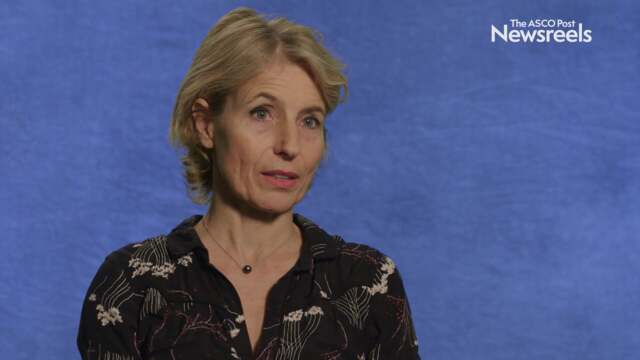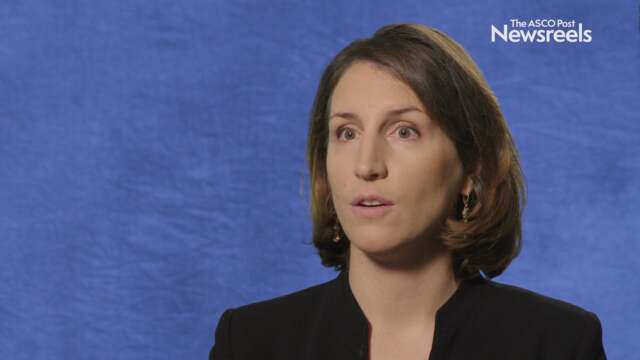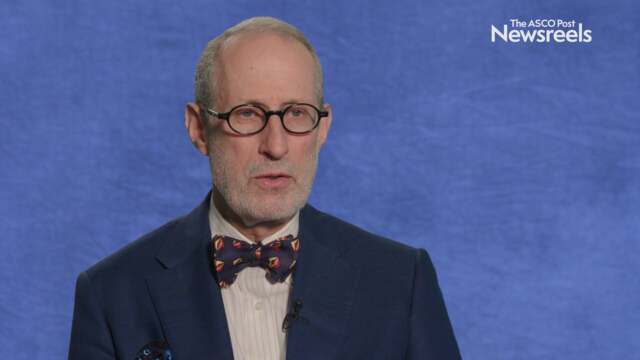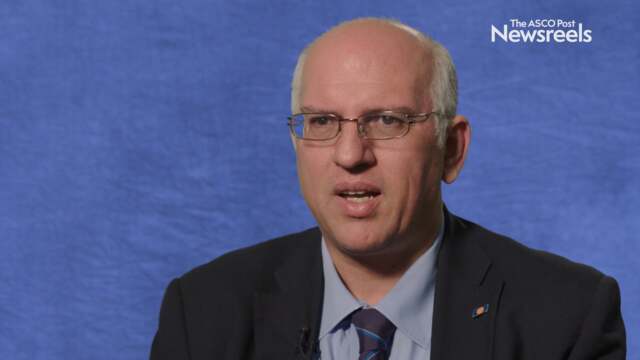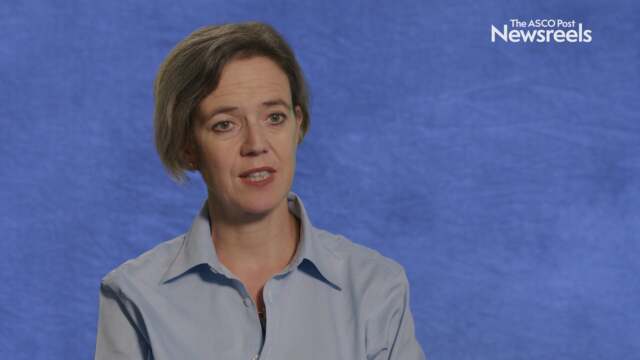Matti S. Aapro, MD, on Immunotherapy in Older Patients
ESMO 2018 Congress
Matti S. Aapro, MD, of the Genolier Cancer Centre, discusses the optimal treatment and supportive care for older patients with cancer, including the importance of maintaining dose density and intensity as well as monitoring toxicity.
Caroline Robert, MD, PhD, of Gustave Roussy Cancer Centre, discusses managing toxicities of immunotherapy, including neurotoxicity, and treating beyond acute adverse events.
Laurence Albiges, MD, PhD, of Gustave Roussy, discusses data from the global, phase III JAVELIN trial that compared axitinib plus avelumab vs sunitinib, which could lead to a new standard of care in renal cell carcinoma (Abstract LBA6_PR).
Jeffrey S. Weber, MD, PhD, of the NYU Langone Perlmutter Cancer Center, discusses how long people with melanoma should be treated with PD-1 blockade and the data on remission rates.
Paolo A. Ascierto, MD, of Istituto Nazionale Tumori–Fondazione Pascale, discusses the breakthroughs in melanoma treatment and the challenges of managing toxicities, especially endocrine and neurologic side effects, which can require lifetime hormone replacement and may cause permanent dysfunction.
Sibylle Lobil, MD, PhD, of the German Breast Group, discusses findings in metastatic breast cancer from the IMpassion130 trial in triple-negative disease and from the PALOMA3 and SOLAR-1 trials in hormone receptor–positive, HER2-negative disease (Abstracts LBA1_PR, LBA2_PR, LBA3_PR).
